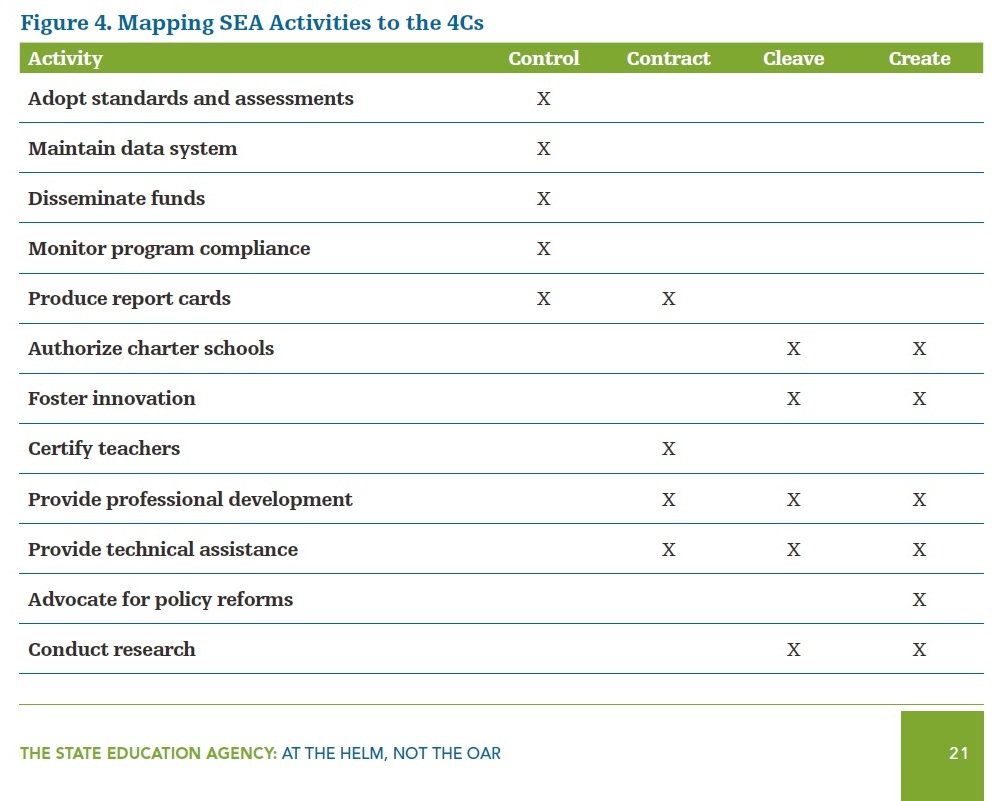A Friday is as good a time as any to step back, survey the education reform landscape, and question some underlying assumptions. The new Fordham Institute report The State Education Agency: At the Helm, Not the Oar summons us to rethink the role of a major player in the K-12 policy world.
Here’s the question: Are we asking, or expecting, too much from our state education agencies (SEAs)? Here we’re talking about the Colorado Department of Education (CDE). Andy Smarick and Juliet Squire lay out the scope of the problem, and then offer a solution.
On the first count, it’s hard to disagree: The current approach of trying to do too much is having some bad results. The Fordham authors cite an example close to home:
In Colorado, the SEA did not use a rubric or other metric for assessing [School Improvement Grant] applications; subsequently, it awarded grants to 95 percent of those that applied. To date, Colorado’s results have been tremendously disappointing: the SEA has spent about $133,000 for each student whose scores increased from below grade-level to grade-level proficiency.
An ineffective result, and an unsustainable trend.
How should we think about the situation going forward? Smarick and Squire say CDE and its peers ought to focus control on doing a few core functions well, and contract out certain services to non-governmental organizations. They also believe SEAs should completely cleave existing functions that require more innovation, while others look to create private-sector partners to fill in the gaps.
Here’s a recommended breakdown from page 21 of the Fordham report of which approach or approaches might work best with which functions:
One item not on the list is financial transparency reporting. Some in our state legislature want CDE to take on the job. Maybe it makes more sense for this function to fall off the “Control” column and have a private group step up to the plate with a school-level spending comparison website. Kind of like Colorado Succeeds takes charge with its increasingly popular School Grades project.
To show how up-to-date the Fordham report is, more than a page is spent profiling the Colorado Education Initiative — which until very recently was known as the Colorado Legacy Foundation (so new in fact, that the former name still comes up as the main website’s heading on a Google search). It is an active and well-funded group, highlighted by Fordham as representative of a quasi-independent SEA partner.
Do Smarick and Squire have all the correct answers? Highly doubtful. Their report shares potential risks of unpleasant consequences from adopting their approach. But I think it at least provides a good framework for our State Board of Education to start thinking more seriously about areas in which the bureaucracy can better be managed and reined in.
Who knows? If nothing else, I may have just thrown another fun plot twist into the last 12 days of this legislative session’s education soap opera….









